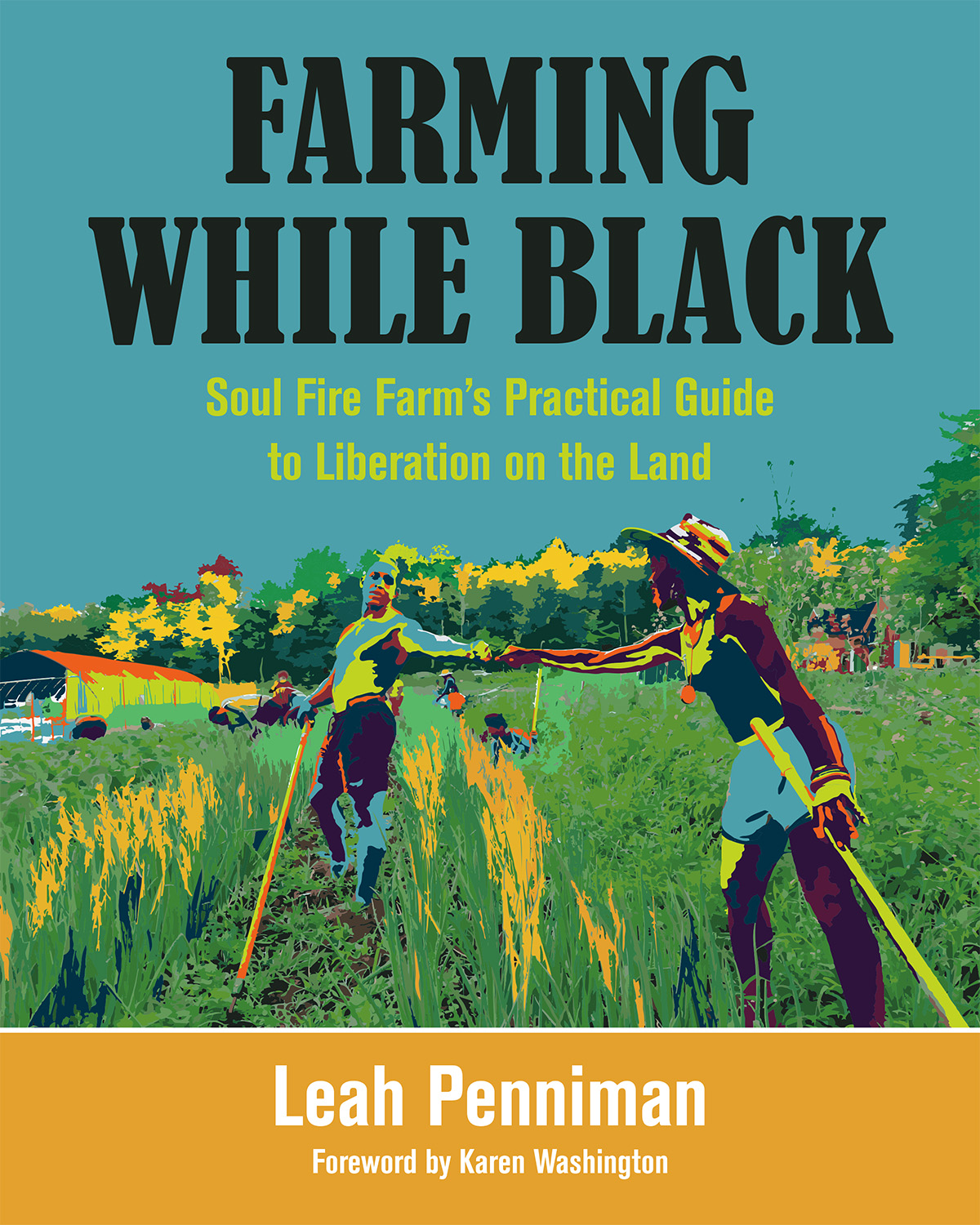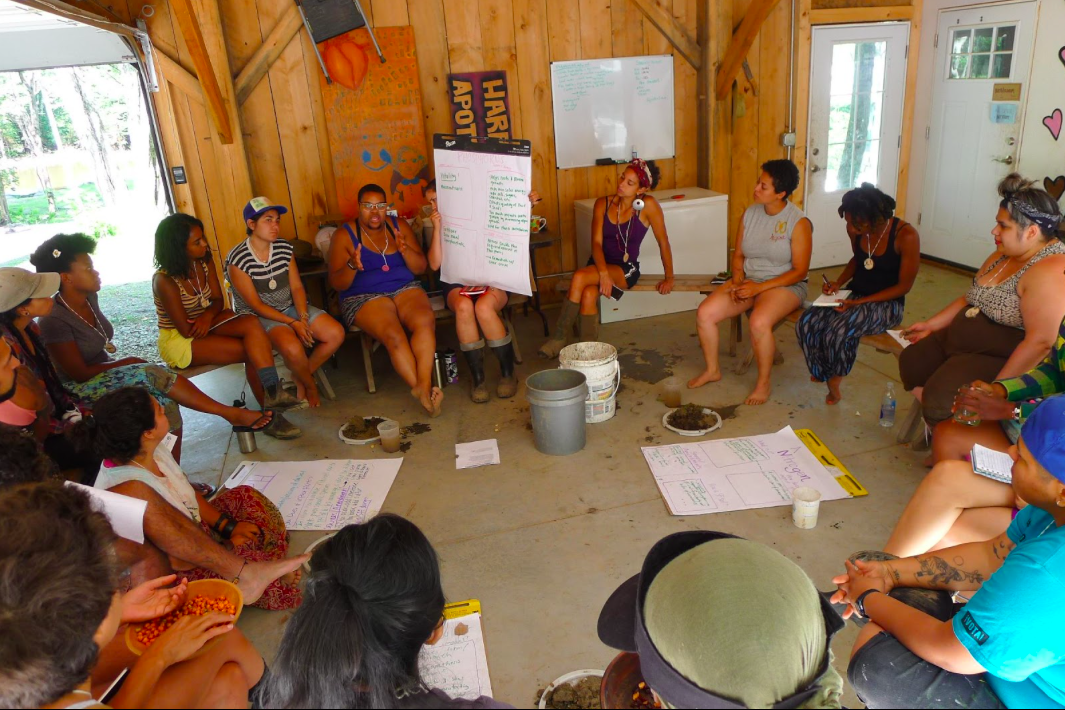“Revolution is based on land. Land is the basis of all independence. Land is the basis of freedom, justice, and equality.”
Some of our most cherished sustainable farming practices have roots in African wisdom. Yet, discrimination and violence against African-American farmers has led to their decline from 14 percent of all growers in 1920 to less than 2 percent today, with a corresponding loss of over 14 million acres of land. Further, Black communities suffer disproportionately from illnesses related to lack of access to fresh food and healthy natural ecosystems. Soul Fire Farm, cofounded by author, activist, and farmer Leah Penniman, is committed to ending racism and injustice in our food system. Through innovative programs such as the Black-Latinx Farmers Immersion, a sliding-scale farmshare CSA, and
Youth Food Justice leadership training, Penniman is part of a global network of farmers working to increase farmland stewardship by people of color, restore Afro-indigenous farming practices, and end food apartheid.
And now, with Farming While Black, Penniman extends that work by offering the first comprehensive manual for African-heritage people ready to reclaim their rightful place of dignified agency in the food system. This one-of-a-kind guide provides readers with a concise “how-to” for all aspects of small-scale farming, including:
Finding Land and Resources
Writing a Farm Business Plan
Honoring the Spirits of the Land with Planting and Harvesting Rituals
Restoring Degraded Land through No-Till and Biological Tillage
Crop Planning for Vegetables, Fruits, and Herbs
Preserving the Harvest and Saving Seed
Raising Animals Sustainably and Humanely
Urban Farming, including a guide to laws and land access
Movement Building through education, direct action, & policy change
Throughout, Penniman includes “Uplift” sidebars to elevate the wisdom of the African Diasporic farmers and activists whose work informs the techniques described, as well as an honest and transparent look at the real work being done at Soul Fire Farm every day.
“Stewarding our own land, growing our own food, educating our own youth, participating in our own healthcare and justice systems,” Penniman writes, “this is the source of real power and dignity.”
“This masterpiece of Afro-indigenous sovereignty sheds light on the richness of Black culture permeating throughout agriculture.”
“The gift Leah has so generously offered within these pages is a glorious invitation to heal; at the heart of the movement for liberation is the opportunity to heal intergenerational trauma. The most authentic way to do so is to cultivate the earth, eat the foods of your ancestors, reweave yourself back into the story that has been sprouting from the village hearth since time immemorial. With these teachings of resilience, channeled from her countless generations of wise ancestors, she has watered seeds of hope that will nourish many beyond our time.”
“Farming While Black is such an incredible gift to our movement. From Black history to soil health to movement building to land preservation, this book is incredibly generous in offering a roadmap for Black people to return to our rich, land-based heritage. Calling all farmers, organizers, and lovers of freedom to pick up this book, read, share, study, and build together. In the words of freedom fighter Assata Shakur: ‘Carry on the tradition.’ Our movement needs this.”



